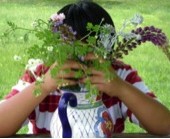
Abstract: Moving beyond the despair resulting from what appears to be a tipping point of life systems due to climate change, this narrative presents a possibility for regenerative hope. The article begins by discussing an emergent typology of hope that includes hokey hope, resolute hope, mythical hope, patient hope, hope deferred, sound hope, authentic hope, critical hope, and transformative hope. Drawing upon this typology, a model for regenerative hope is developed with the following features: care and conviviality, experience and engagement, imagination and joy, risk-taking and belief in possibilities, and critical sensibilities and transformation. Series of photos and voices of youth from a low-income middle school actively engaged in the learning gardens are presented as practical examples of pedagogy of action and agency manifested as regenerative hope.
Continue Reading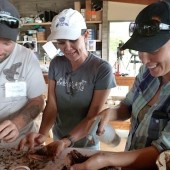
We are faced with a multitude of environmental challenges today, including sustainable food, water, land, and energy resources. As we strive to understand and address these resource issues, we become keenly aware that there are neither quick fixes nor short-term solutions. Consequently, these resource issues will be handed down from this generation to the next—and to the next—for progressive resolution. Therefore, our students need to have an education grounded in STEM (science, technology, engineering, and mathematics) that will prepare them to become the systems thinkers, critical analyzers, and creative problems solvers that living sustainably on this planet demands. In order to benefit from such an education, our students require teachers who are not only well-trained in STEM concepts and skills but also understand how to create authentic, standards- and experienced-based learning activities for their students in meaningful educational settings. To address this requirement, a year-long, experience-based School Learning Gardens Professional Development Program was created for teachers, implemented by the The Kohala Center’s Hawaiʻi Island School Garden Network on the Big Island of Hawaiʻi, and funded through a USDA/SPECA “Ag in the Classroom K-12” grant. This study was conducted with the 29 classroom and school learning garden teachers who participated in the week-long teacher training workshop component of the program. The study examined teachers’ attitudes toward sustainability education before and after the workshop. Teachers’ attitudes were measured using the Teachers’ Attitudes Related to Sustainability Education survey. Findings revealed that there was a statistically significant increase in teachers’ overall attitudes toward sustainability education, as well as their attitudes related to productivity and comfort within sustainability education.
These findings were viewed as an essential first step in assuring that teachers were prepared and willing to provide students with meaningful, experience-based school learning garden activities that hold promise for an environmentally-sound and resource-sustainable future for generations to come.
Continue Reading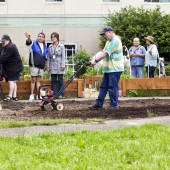
Experiential and inclusive sustainability leadership practices in learning garden programs can lead to increased community food security. This recent study shows that Oregon Food Bank’s Seed to Supper program increases food literacy, builds social capital, and creates opportunities for fostering inclusive leadership in learning garden communities. Through a mixed-methods community-based research process, the study found that learner empowerment through food literacy and sustainability leadership increased access to locally-grown foods for food insecure populations. The leadership model discussed in this paper uses the concept of the web of inclusion (Helgesen, 1990) as a framework for discussing the intricate social networks within the Seed to Supper program.
Continue Reading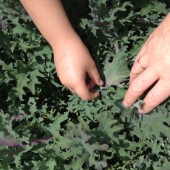
In order to address the ecological and social problems of sustainability in our modern times, citizens need to be empowered with an understanding of science, technology, engineering, and math (STEM) concepts and practices. Furthermore, STEM must be democratized and taught in life-giving and life-sustaining ways that include all students instead of the small fraction of “high achievers” and limited to the “potential” scientists, engineers, and mathematicians. At present, K-12 students and their teachers rarely have the opportunity to learn beyond their concrete school walls and to reconnect with nature, exacerbating their disconnection of STEM from real life and hence sustainability. We believe that engagement with school grounds and gardens and the very soils on which learning takes place can provide simple yet authentic day-to-day educational experiences that can bring mindfulness of lessons related to the cycles of life and death and to the interplay of justice and power in our communities. To transform teaching and learning in the classroom, teachers need different learning experiences that provide them with the time, space, and appropriate supports to translate their learning into teaching practice making education relevant to life. School gardens provide a rich context for learning both for teachers and students by embracing experiential, integrated, and collaborative learning. This study highlights an example of a summer program that involved teachers in hands-on education related to STEM in the learning gardens at four low-income schools in southeast Portland representing the growing ethnic, linguistic, and cultural diversity of the districts in the metropolitan area. Teacher voices capture the essence of learning STEM in the learning gardens, and also address issues of social and environmental justice.
Continue Reading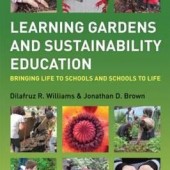
Tricia Francis-Morgan elegantly lays out all the power in Williams and Brown’s book. She gives just enough of a taste of how transformational learning gardens can be, in so many different ways, from the social to the physical, to the biological, that we are left with a desire to quickly get the book. At the same time, Francis-Morgan’s perspective on this pioneering book carries extra weight given her own experiences using learning gardens in the Caribbean.
Continue Reading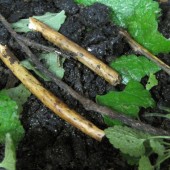
In Learning Gardens and Sustainability Education: Bringing Life to Schools and Schools to Life, Williams and Brown (2011) place living soil at the center of the discourse on sustainability education. One of the seven principles that guides their pedagogy of learning gardens is: valuing biocultural diversity. This photo-essay of elementary students in K-8 schools, explores how 4 inches of soil in the learning gardens can teach about life’s diversity. The author urges humble attentiveness to that which is below our feet seemingly hidden and unnoticed yet teeming with life.
Continue ReadingSustainability is now permeating educational institutions. Yet the emerging discourse on sustainability education is in many ways caught in a modern web of theoretical, ontological, and epistemological assumptions that are incongruent with sustainability. We introduce an ecologically grounded metaphoric language rooted in living soil as an alternative regenerative framework for linking sustainability pedagogy with pedology […]
Continue Reading